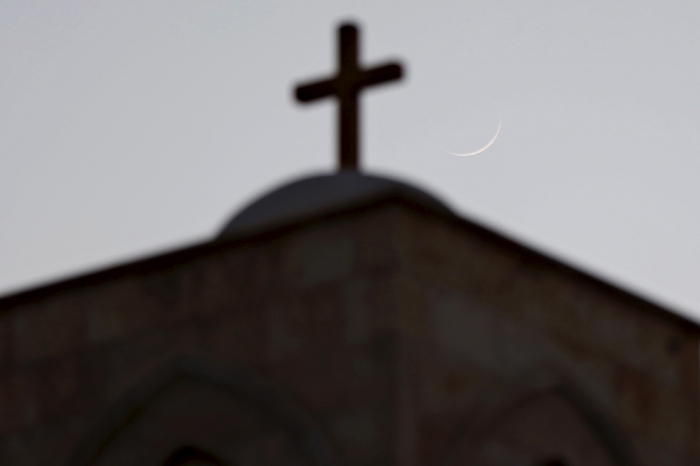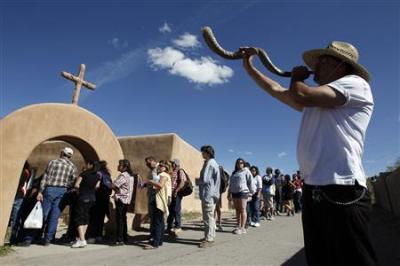Those Who Attend Church Regularly Are Seen as More Trustworthy, Evolutionary Anthropologist Says

What do others around us think when they see us performing religious actions like going on a pilgrimage or going to church regularly? The observers take us to be more trustworthy and morally committed, says an American evolutionary anthropologist, sharing the findings of her research among religious communities in South India.
The question about how religious actions are perceived by others came to Eleanor Power, Omidyar Postdoctoral Fellow at the Santa Fe Institute in New Mexico, after watching year after year thousands of pilgrims en route to El Santuario de Chimayo, a nineteenth century Roman Catholic church on the hills north of Santa Fe, where she lives. It's the trek many take during Holy Week, the last week of Lent before Easter.
One year, she decided to join them for the last few miles but came home with "sore feet and tired muscles." Recalling the difficult time she had, she would later pass these pilgrims on the road and infer "all sorts of qualities and characteristics" about them.

"These people must have a strength that I do not, I'll reflect as I drive comfortably by with the AC on. That strength must not only be physical, but mental, too. They must have conviction, I'll surmise. They must be driven forward by their faith and by one another," she wrote in a blogpost for The Evolution Institute's website.
Noting that "humans are eminent stereotypers," Power said one's religious actions are often used to make some type of conclusion about that person's character and commitments.
The idea that religious action reveals religious commitment builds on the insights of what's known as the "signaling theory," which argues that while it's hard to have confidence in the quality and intentions of others, we can have some confidence if there are signals that only an individual who honestly has the underlying quality or commitment is able to give, the researcher explained.
Power lived in South India, which has a mixed population of Hindus, Catholics and Protestants, for two years for her research.
"Residents there often undertake impressive acts in the name of their faith: they go on pilgrimages there, too, sometimes barefoot, to the Hindu temple at Palani or the Catholic church at Vailankanni; they fulfill religious vows by piercing their bodies with hooks and spears or walking across a bed of hot coals; they sacrifice animals; and they even become possessed by the divine," she described.
She found out that those who worship regularly at a church or a temple and those who undertake dramatic acts of devotion were seen by their peers as more devout. "They were also seen as having a good work ethic, giving good advice, being generous, and having good character. A whole suite of other-focused, prosocial qualities was being attributed to those villagers who invested in the religious life of their village."
Additionally, "it was clear that these were some particularly discerning observers: they gave more recognition to those who were demonstrating multiple different types of religious action (not only going on a pilgrimage, perhaps, but also going to the temple each week). And, they paid particular attention to the religious action of young people, whom they were still trying to suss out."
The evidence that a person's religious action shapes how others perceive him or her might help us "better understand why we see such impressive forms of religious devotion the world over," she noted.
Power concluded, "My very response – all that I infer about the character, commitments, and convictions of that devotee – stems from how daunting and risky that religious act is. Undertaking such an act, then, reliably conveys something about that person's moral commitments to others. By building others' confidence in his/her actions and intentions, he/she may then be better able to establish strong, trusting relationships with others."





























